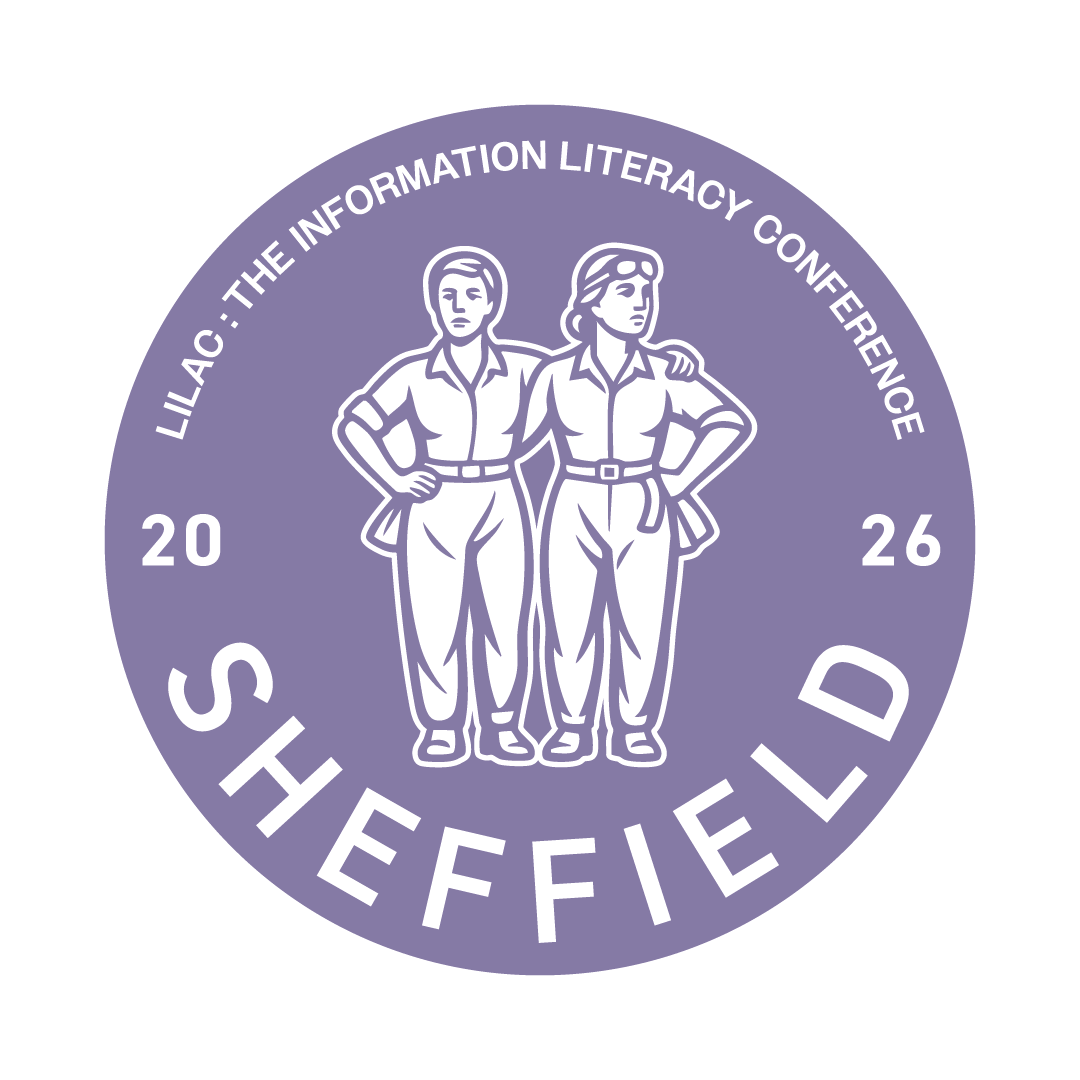
On this page you will find details of:
A selection of photos from the conference can be found on our flickr.
Anja Timm (Senior Research Fellow in Education, University of Southampton). “The library? Why would I go there?” - Library use by undergraduate students in China, India and Greece.
Frances Norton (Head of the Wellcome Library). Using library and museum materials in the pursuit of scientific literacy and public engagement.
Christine Irving & John Crawford (The Scottish Information Literacy Project, Glasgow Caledonian University). The development of a National Information Literacy Framework (Scotland): progress, barriers, constraints and opportunities.
Tara Brabazon (University of Brighton). From spin to social justice: librarians in the ‘conceptual age’.
Adams, J., Pope, A. & Walton, G. ASK: the CILIP UC&R innovation award 2007 winner: a practical approach to information literacy.
Antonesa, M. & McAvinia, C. Development and delivery of a Science and Engineering information literacy programme at NUI Maynooth.
Appleton, L. & Beal, A. Lollipops for learning resources.
Bauer, L. & Hierl, S. The role of libraries in supporting the development of information literacy and collaborative skills. Aspects, concepts and case study.
Belanger, J. Assessing the effectiveness of information literacy teaching at the University of Bedfordshire.
Bent, M. & Webb, J. Researchers' learning lives.
Boden, D. & Stubbings, R. Snapshots of the future: SirlearnaLot and SMILE!
Booth, D. ‘Captivate’ your support literacy (poster).
Burnett, S. & Downes, L. Get 'em young! Active information literacy as part of the widening participation agenda.
Byrne, U. & Dodd, L. Integrating information literacy instruction (ILI) into degree programmes at University College Dublin (UCD) – challenges that success brings.
Clark, K. The RCN’s information literacy programmes for activists (poster).
Colding, L. What IF? The University of Central Florida’s strategy for success.
Conroy, H. i-Skills in the workplace: assessing and meeting staff development needs.
Corrall, S. Developing an evaluation framework for information literacy strategies (poster).
Corrall, S. & Cox, L. Librarians as teachers: the pedagogical knowledge and development needs of subject librarians.
Craig, A. Ringing the changes: reflections on delivering an information literacy module.
Crawford, A. Academic liaison saves the world?
Crawford, J. Information literacy in the workplace: a qualitative interview based study.
Dodd, L. & Byrne, U. Supporting information literacy needs in different educational approaches – problem-based learning(PBL) at University College Dublin (UCD).
Foster-Jones, J. & Reedy, K. Extending the reach and learning new skills: IL the web conferencing way.
Garfield, D. A university reading strategy: putting the library at the heart of learning (poster).
Glass, B. Online information literacy audits.
Godwin, P. & Bullimore, A. Helping the Podders at Bedfordshire.
Haerkoenen, S. From 0 to 100% in a year - embedding information literacy in a complex setting.
Harrop, D. & Borg, M. Inspiration versus information: mind the gap.
Hauxwell, H. Information literacy at the issue desk: the role of circulations staff in promoting information literacy.
Havergal, V. Going wild: webquests for information literacy development (poster).
Hollanti, P. & Puttonen, K. Experts need information literacy, information literacy needs experts (poster).
Howard, H. Set for success… developing researchers’ information literacy skills.
Jackson, C., Morgan, F., Mogg, R. & Collins, L. Message received and understood? (poster).
Jones, R. ARGOSI: Alternate Reality Games for Orientation, Socialisation and Induction (poster).
Keene, J. & Colvin, J. Role delineation in an iterative, cognitive skills based model of information literacy.
Kirton, J., Barham, L. & Brady, S. Understanding and practices of information literacy in Australian Government Libraries (poster).
Macrae-Gibson, R. & Bell, M. Moodle at LSE Library: bringing information literacy to the students' desktop.
Mar, G. Doing it the South Pacific Way – ILP at USP Library (poster).
Martin, L. & Clarke, L. Infozone: a blended approach to developing information literacy from the start!
Massam, D. & Charnock, L. Power to the people: exploring the development of the Informs software tool through community engagement.
McKinney, P. Information literacy through inquiry.
McKinney, P. Raising the profile of information literacy at the University of Sheffield (poster).
Mogg, R. Podcasts: IL delivery on demand.
Moore, K. Building a digitally fluent university (poster).
Myhill, J. & Briggs, S. How can enquiry based learning techniques be used in the curriculum to develop a student’s ability to research, analyse, evaluate and use information? (poster).
O'Brian, T. & Russell, P. A cross-sectoral approach to information literacy - experiences of an Irish national working group, 2006-2008.
O'Hanlon, N. Teaching every student: strategies for reaching a diverse audience online.
Pope, A., Walton, G. & Adams, J. Creating Higher Education information literacy partnerships through Staffordshire University information literacy community of practice (poster).
Reid, W. & Diver, R. Interactive information skills tutorials; the LJMU project.
Rowell, G. Using TurnitinUK to promote ethical use of electronic sources.
Saad, M.S.M. Search and use of information among final year Computer Science and Information Technology undergraduates.
Seatwo, A. & McLoughlin, D. How information helps to promote diversities and social justice – an overview of an information literacy project involving voluntary and community groups in Liverpool.
Secker, J. & Brown, J. The LSE Training Portal: a really simple solution?
Smith, M. & Hepworth, M. Perceptions of information: the net generation.
Smith Macklin, A. & Bartow, F. Innovative design: using problem-based learning to teach information literacy.
Stubbings, R. SirLearnaLot to the rescue (poster).
Stubbings R., Arkle, S. & Woolley, M. LolliPop.
Torras i Calvo, M. The academic librarian as a supervisor: intervening in the student's research process.
Walsh, A. & Munks, S. Crosswords, library bingo and quizzes: getting more active learning into our teaching.
Webber, S., Cormie, V. & Parker, L. Out-genning the net generation: Second Life as a learning environment.
Weetman DaCosta, J. How practical can you get? A simple way to create an information literacy tutorial.
Whitworth, A. Information literacy and professional development: a critical view.
LILAC is great opportunity for our fellow professionals to present their ideas, share best practice and show case new thinking in our sector. If you have an idea then we'd love to hear about it. We have many options for the types of sessions you might run from a symposium to a workshop. Visit our Call for Presentations page to find out how to apply.
Places at this year's conference are likely to be in demand more than ever before. Each year our conference grows increasingly popular and this year promises to be no different. Don't miss out and book your place now for this year's conference.
We look forward to seeing you there!
